Life is filled with small pleasures. For me, a few of those small pleasures include anything pertaining to the avian world. I enjoy spending my time bird watching and I especially enjoy watching all of my bird visitors at the feeders. This includes, in particular, my black-capped chickadees. To show my appreciation for all of the joy these birds bring me, I thought I would spoil them with an extra treat at the feeders.
While shopping for a new variety of food, I settled on purchasing a bag of Feathered Friend Chickadee’s Choice Wild Bird Seed. bags of seed come in a variety of sizes and I decided on a four-pound bag that set me back $6.99. I may go with a larger bag in the future, but I wasn’t sure if they would like it or not and I didn’t want to see any of it go to waste or to the squirrels.
Here are a few images of the bag of Feathered Friend Chickadee’s Choice and its contents:
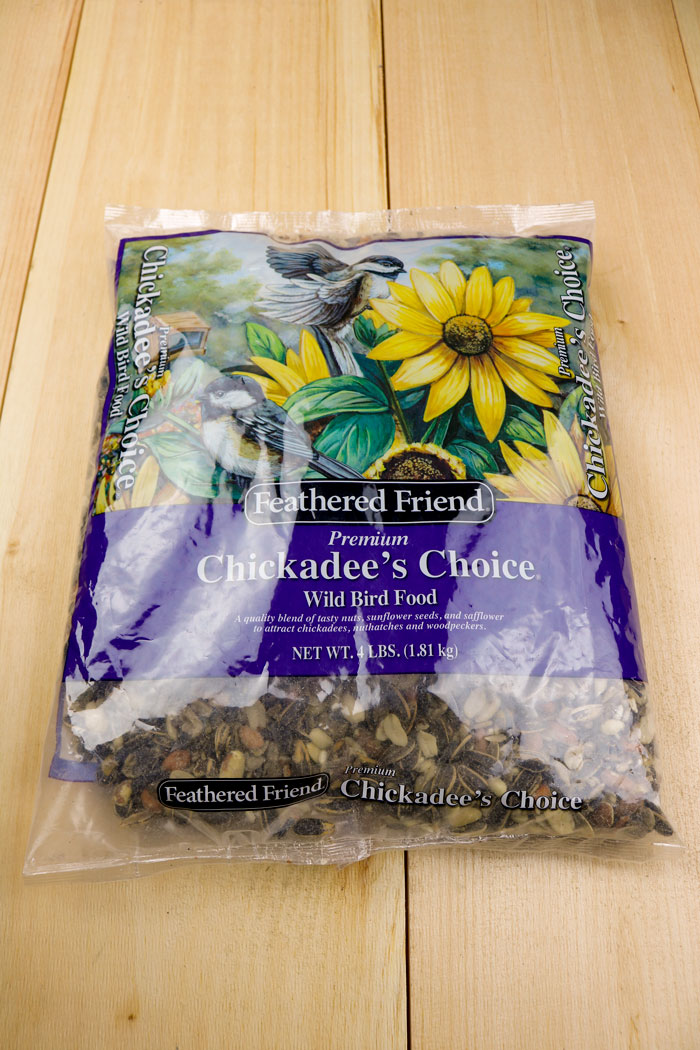
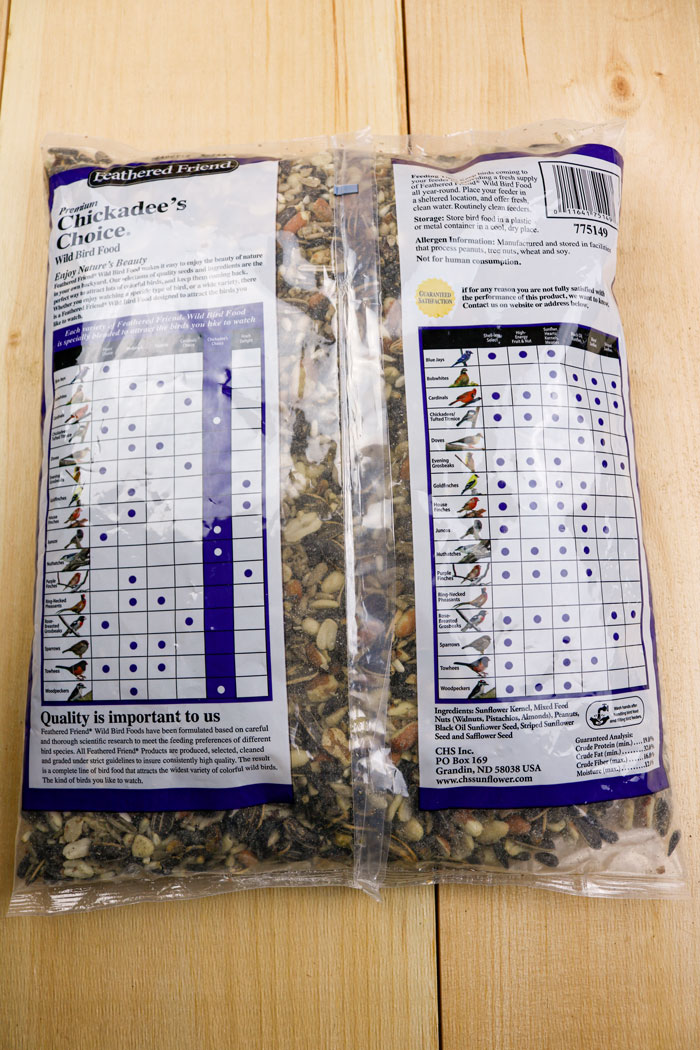
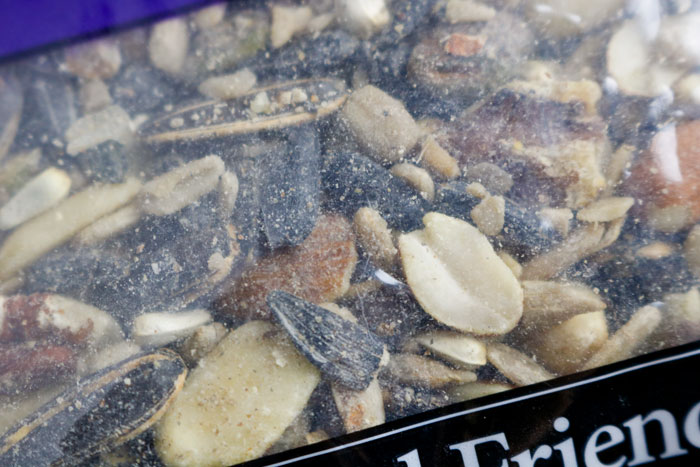
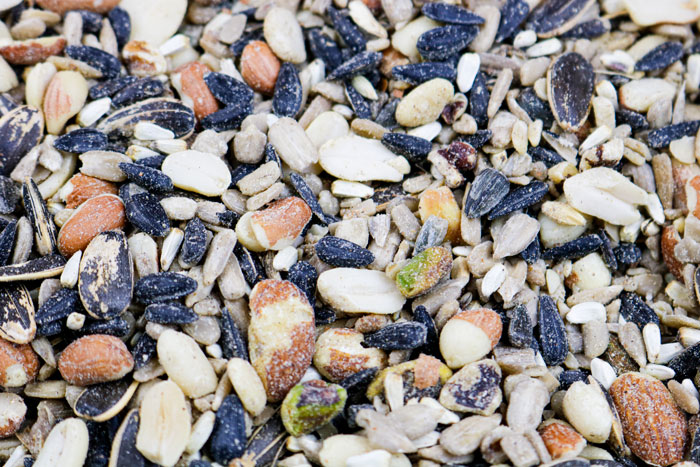
This food claims to attract chickadees, tufted titmice, juncos, nuthatches, wrens, and woodpeckers. And boy did it ever! The mixture includes sunflower kernel, mixed feed nuts (walnuts, pistachios, almonds), peanuts, black oil sunflower seed, grey striped sunflower seed, and safflower seed. This seed blend can be used in a variety of feeders such as hoppers, trays, tubes, and window feeders.
Upon opening the bag, I took notice of the nice and fresh smell of its blend of seeds and nuts. I set up my Pennington Cedar Hanging Feeder with some of the contents from the bag and waited to see what would happen. Within a few minutes and with their keen sense of smell, my black-capped chickadees arrived to inspect the new food. They enjoyed it very much and I also had several other interested bird visitors show up as well. I took notice that the black-capped chickadees especially enjoyed the grey-striped sunflower seeds and peanuts. The peanuts were also quite popular with the white-breasted nuthatches.
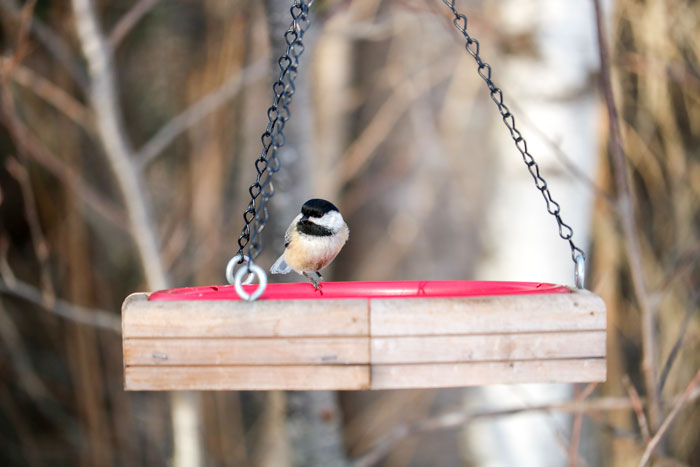
A black-capped chickadee Poecile atricapillus at the feeder.
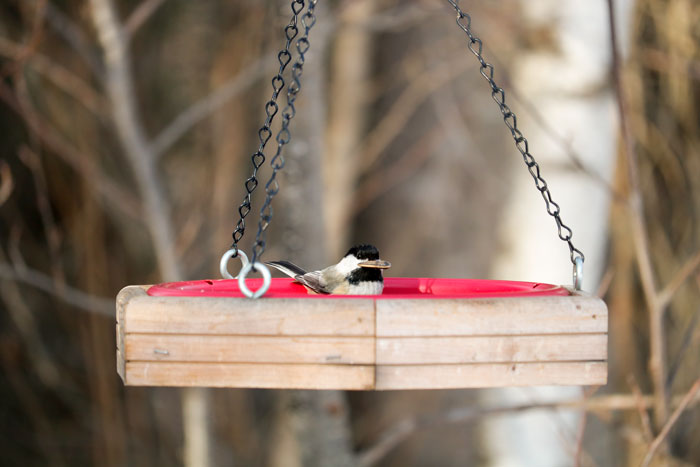
A black-capped chickadee with a grey-striped sunflower seed.
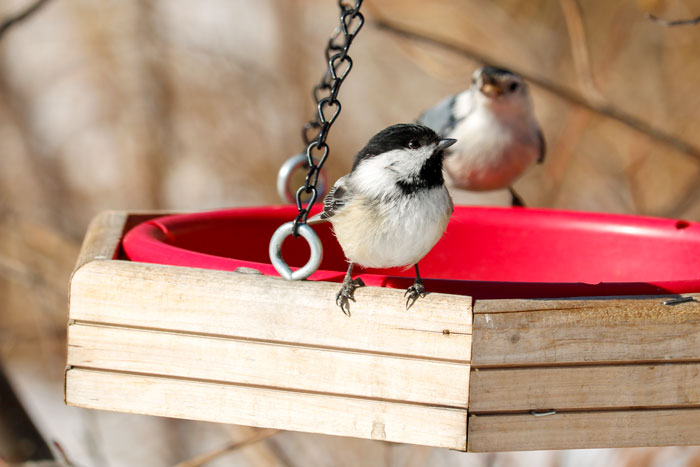
A black-capped chickadee and white-breasted nuthatch at the feeder.
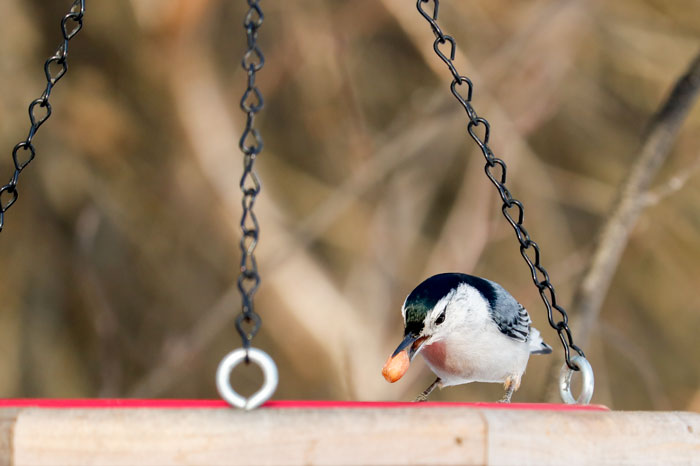
A white-breasted nuthatch Sitta carolinensis taking a peanut.
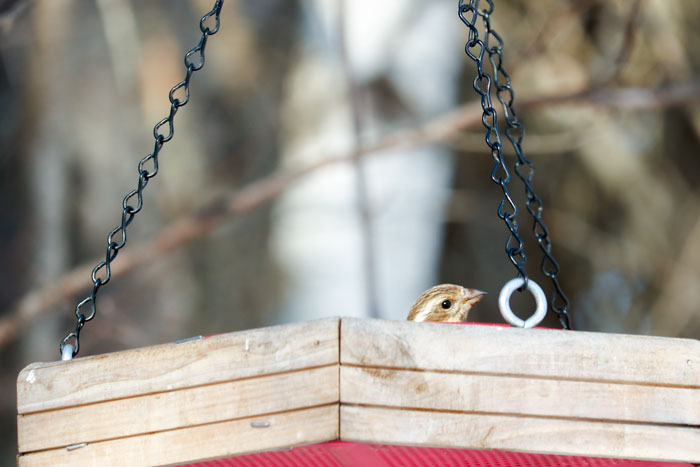
A female purple finch Haemorhous purpureus at the feeder.
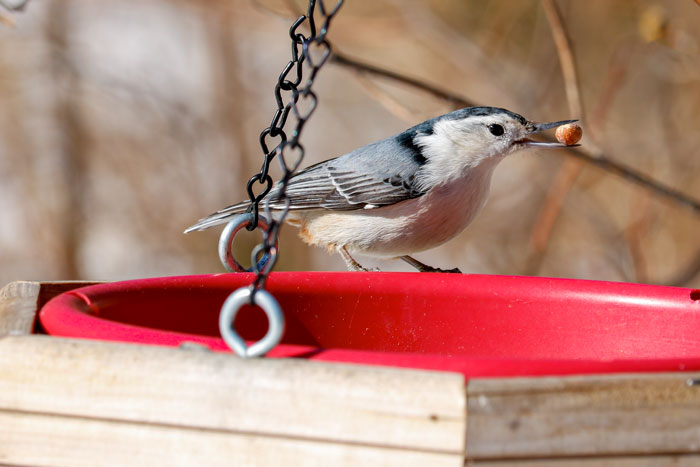
A white-breasted nuthatch coming back for more.
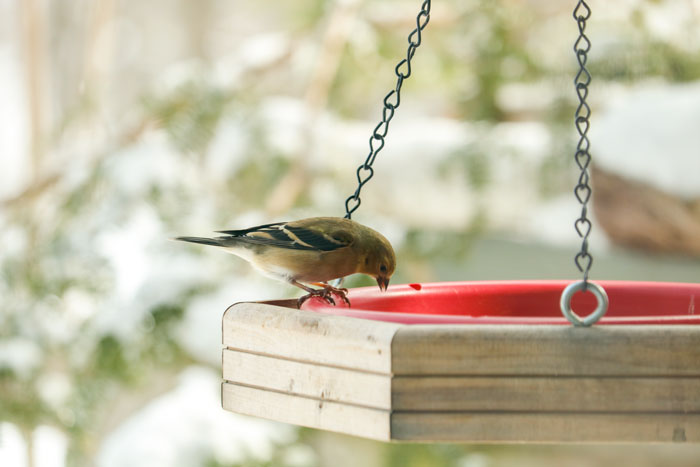
An American goldfinch Spinus tristis at the feeder.
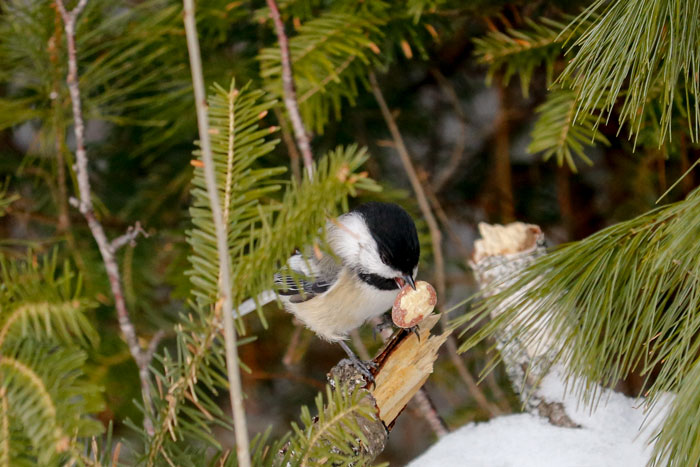
A black-capped chickadee in the woods enjoying a peanut.
I also provide suet for the black-capped chickadees and the other birds as well. I have been purchasing woodpecker suet from C & S Products Co. Inc. It goes for about 99 cents a cake. It has a wonderful peanut scent and is a big hit with my visitors.
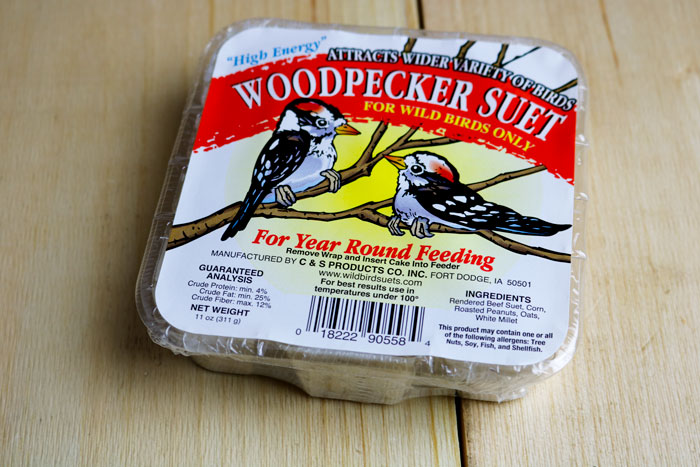
Woodpecker suet for year-round feeding.
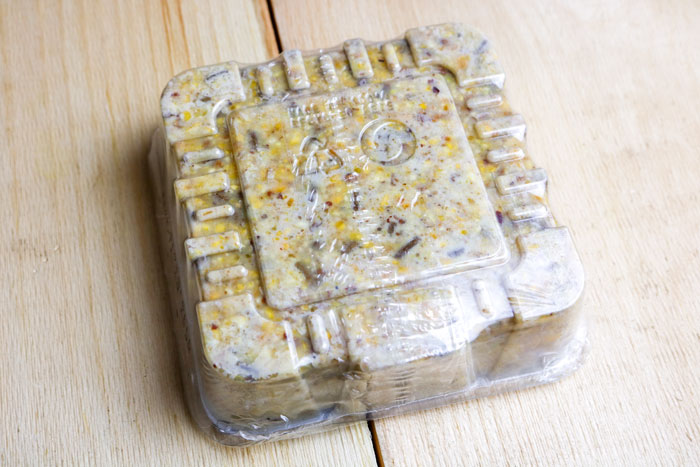
A detailed view of the suet.
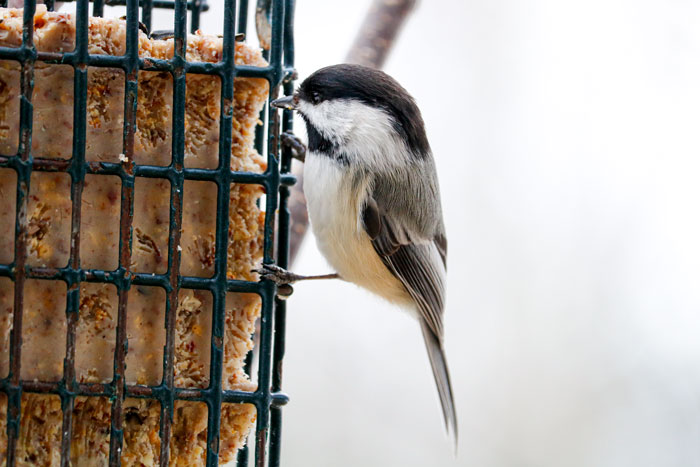
A black-capped chickadee feeding on suet.
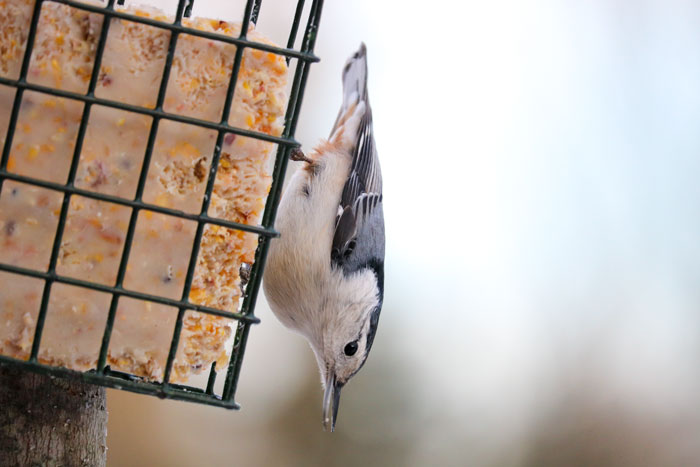
A white-breasted nuthatch enjoying suet.
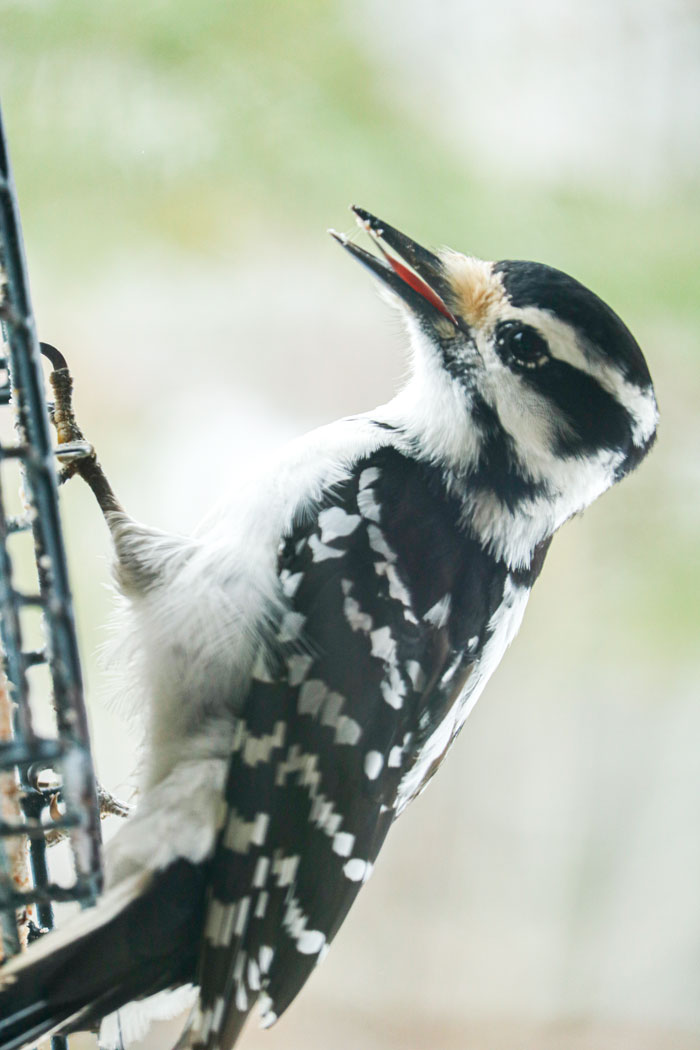
A female hairy woodpecker Leuconotopicus villosus enjoying suet.
My main go-to bird food is Feather Friend Premium Black Oil Sunflower Seeds. I usually purchase about two, forty-pound bags per year and these feed a variety of birds throughout the year. Each bag costs about $17.99. This popular food provides a nice energy source for the birds and I am constantly restocking my feeders.
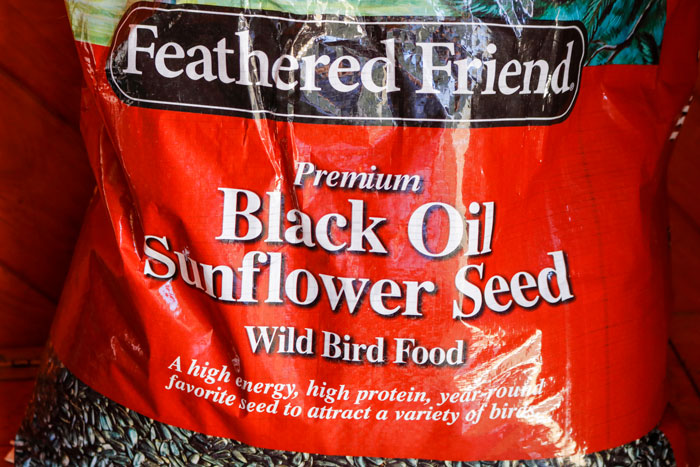
A bag of Feather Friend Premium Black Oil Sunflower Seed.

A view of the black oil sunflower seeds.
I think I will be adding the Chickadee’s Choice in addition to the black oil sunflower seeds and suet. I will purchase a larger bag next time and I think this will make for a nice variety of foods for my black-capped chickadees as well the other birds. If you have any favorite food brands and blends that you provide your black-capped chickadees and other bird visitors, please feel free to leave a comment. I would love to hear from you.
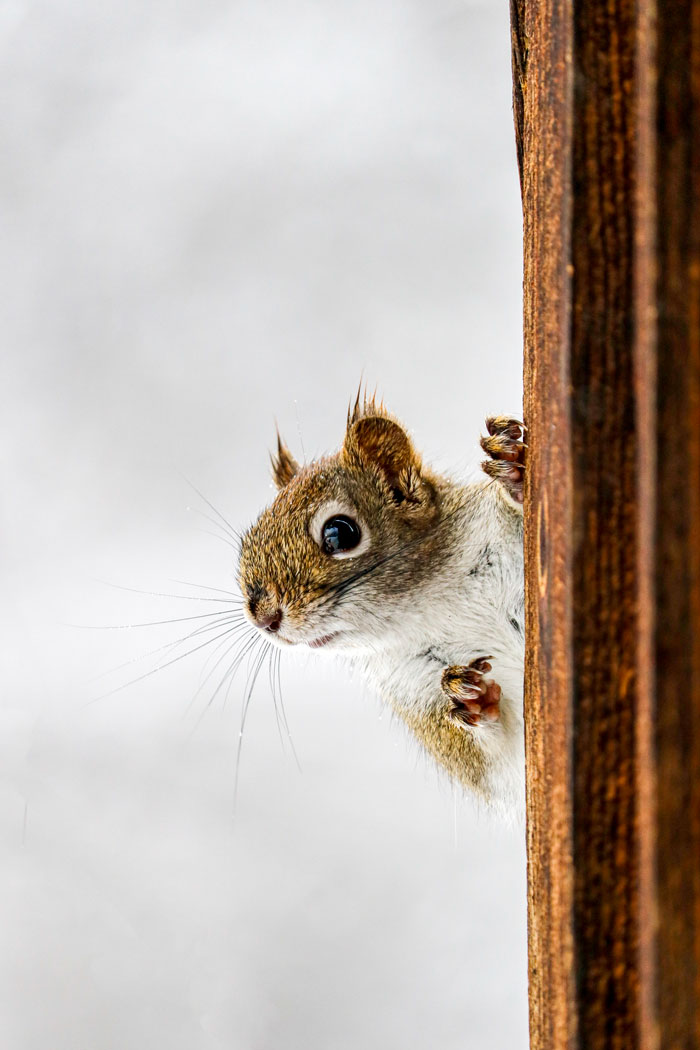
“Excuse me, can I have some bird food, too, please?”
Of course, within reason, I do allow these troublemakers to enjoy some bird food as well. They can have as much as they want of the fallen black sunflower seeds on the ground. Not from my feeders. Money doesn’t grow on trees, you know!
I enjoy your photos and information. I have 6 bird feeders here in central NC. I use black Niger for the goldfinches, black oil sunflower mainly for cardinals, titmouse, goldfinch, Carolina wren, Doves etc. Also shelled sunflower for the blue birds (but limited success attracting them). But I go through a lot more food than you, maybe the warmer climate? I use about 6 40 pound bags of black oil sunflower/year and the same of shelled sunflower for the blue birds (but all the birds like the shelled sunflower – expensive).
Do you have much luck with blue birds?
Hi John,
Thank you for your kind words! Yes, that is a lot of food that you go through, but I’m sure it is well worth the cost! I’m happy to hear that you have such a wonderful variety of birds. In regard to your question about bluebirds, I had a male and female show up about two years ago during the early spring. I hoped that they would stay, but they didn’t stick around. I recently purchased a bluebird box and I hope this will attract a breeding pair. I also bought dried mealworms. I will try the shelled sunflower as well. That seems like a good idea, but yes, I’m sure it will be a bit expensive. On the plus side, maybe, I will attract a wider variety of birds this spring. It is quite exciting waiting to see who shows up. Good luck to you!
Take care,
Laura
I bought the mixed chickadee food with black oil sunflower seeds, but the black oil seeds end up on the ground as if they don’t like them, even though they are supposed to be one the bird’s favorite foods. Why do you think this is?
Hello Bonnie,
Thank you for your question. The only thing I can think of as to why your birds are choosing to consume the other seeds over the black oil sunflower seeds is possibly due to the time of year. The birds have plenty of other food sources to choose from and maybe they are supplementing their diets with your food. It seems as though they may prefer the “treat” parts of the mix. Perhaps, during the winter, they will be looking to you, for a more high-energy food source and those black oil sunflower seeds will be more essential to their survival. Please let me know how you make out or if you have any more questions.
Take care, Laura
Great post. I have planted some berry and sunflower plants right in my yard because I think chickadees love to eat insects, berries, and sunflower seeds. Indeed, I see them in the yard every day.
Thank you! I’m glad you liked the post and I hope you are enjoying watching your chickadees!